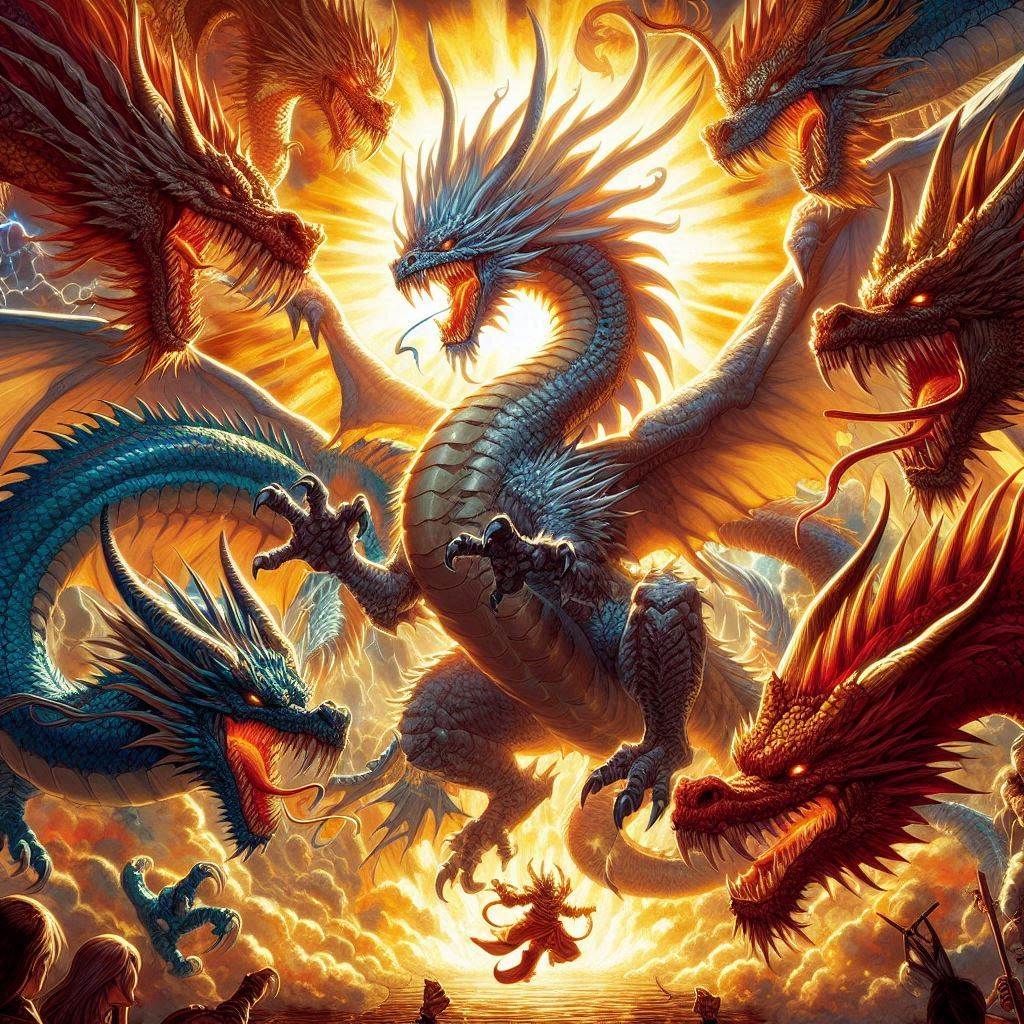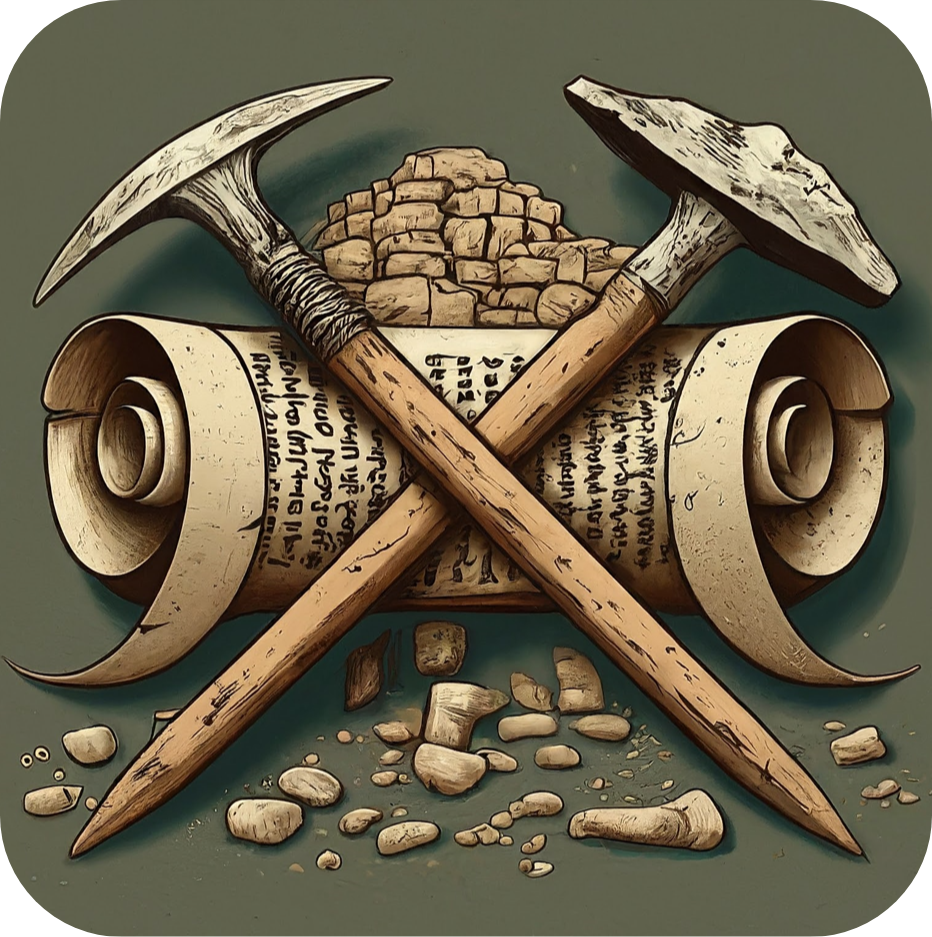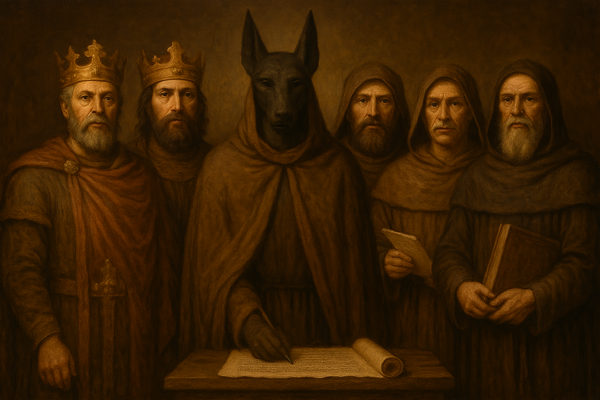The Dragon of Yahweh

Most people don't think of Exodus chapter 7 often, and when they do, they most certainly do not think of dragons. Regardless, Exodus chapter 7 contains an intense narrative including magic, dragons, and the sorcerers of Egypt's secret arts. Chapter 7 is normally known as when Moses' staff is turned into a snake, but this is a common misconception. The story of Moses turning his staff into a snake happens in Exodus chapter 4. What happens with Aaron's staff in chapter 7 is almost entirely different. Let's take a look at the passage in question.
Exodus 7:8-13
8 Now the Lord spoke to Moses and Aaron, saying,
9 “When Pharaoh speaks to you, saying, ‘Work a miracle,’ then you shall say to Aaron, ‘Take your staff and throw it down before Pharaoh, that it may become a serpent.’ ”
10 So Moses and Aaron came to Pharaoh, and thus they did just as the Lord had commanded; and Aaron threw his staff down before Pharaoh and his servants, and it became a serpent.
11 Then Pharaoh also called for the wise men and the sorcerers, and they also, the magicians of Egypt, did the same with their secret arts.
12 For each one threw down his staff and they turned into serpents. But Aaron’s staff swallowed up their staffs.
13 Yet Pharaoh’s heart was hardened, and he did not listen to them, as the Lord had said.
The word for serpent in Hebrew is actually the word Tannin which is normally translated as dragon, monster, or sea monster as it appears many times throughout the Old Testament. In Isaiah 27 it is associated with the Leviathan.
Isaiah 27:1
In that day the Lord will punish Leviathan the fleeing serpent,
With His fierce and great and mighty sword,
Even Leviathan the twisted serpent;
And He will kill the dragon who lives in the sea.
Leviathan, of course, is the great dragon described in detail in Job 40.
Job 41:12-21
12 “I will not keep silence concerning his limbs,
Or his mighty strength, or his orderly frame.
13 “Who can strip off his outer armor?
Who can come within his double mail?
14 “Who can open the doors of his face?
Around his teeth there is terror.
15 “His strong scales are his pride,
Shut up as with a tight seal.
16 “One is so near to another
That no air can come between them.
17 “They are joined one to another;
They clasp each other and cannot be separated.
18 “His sneezes flash forth light,
And his eyes are like the eyelids of the morning.
19 “Out of his mouth go burning torches;
Sparks of fire leap forth.
20 “Out of his nostrils smoke goes forth
As from a boiling pot and burning rushes.
21 “His breath kindles coals,
And a flame goes forth from his mouth.
The Leviathan is described as a fire breathing dragon, who is incredibly tall and spends most of his time in the ocean (in Isaiah 27, Job 41 and Psalm 74).
Psalm 74:13-14
13 You divided the sea by Your strength;
You broke the heads of the sea monsters in the waters.
14 You crushed the heads of Leviathan;
You gave him as food for the creatures of the wilderness.
Psalm 74 is generally considered to be using metaphorical language here, using the Leviathan and other sea monsters as symbols of chaos that God conquered when he freed His people from Egypt through the waters.
This would make sense to the ancient reader because dragons were mostly recognized as being in the water where we are told God originally made the tannin.
Genesis 1:21
God created the great sea monsters and every living creature that moves, with which the waters swarmed after their kind, and every winged bird after its kind; and God saw that it was good.
But they are not always mentioned in the context of the ocean, they also appear on land.
Malaki 1:3
but I have hated Esau, and I have made his mountains a desolation and appointed his inheritance for the [dragons] of the wilderness.”
Psalm 91:13
You will tread upon the lion and cobra,
The young lion and the serpent you will trample down.
They are also on dry land in Exodus 7, were we find the strange and fantastical story of both God and human sorcerers turning staffs into dragons.
Exodus 7:10-11
10 So Moses and Aaron came to Pharaoh, and thus they did just as the Lord had commanded; and Aaron threw his staff down before Pharaoh and his servants, and it became a [dragon].
11 Then Pharaoh also called for the wise men and the sorcerers, and they also, the magicians of Egypt, did the same with their secret arts.
It is perhaps stranger and more incredible to acknowledge that humans performing magic were able to create dragons from wooden staffs. God can of course do all things, but humans are remarkably limited. Even so, the magicians/sorcerers of Egypt were able to replicate this act (no doubt by the power of demons, the gods of Egypt that God said he would judge, Exodus 12:12).
Regardless of their abilities, and that of the false gods they worshiped, the dragon of Yahweh devoured them all.
Exodus 7:12
For each one threw down his staff and they turned into serpents. But Aaron’s staff swallowed up their staffs.
One can only imagine just how intense this scene would have been, in the midst of the Pharoah, his wise men, sorcerers, and royal guard.

We don't know how many staffs were turned into dragons, but the sight would have been a powerful display of God's superiority over the gods and magicians of Egypt.
Although the exact appearance of dragons is unknown, the Bible provides a detailed description of the Leviathan, which is clearly regarded as a dragon, and such can be assumed at least in part to be shared with other dragons the Bible mentions.
Opposing Interpretations
Tannin can of course be argued to mean something other than dragon, linguistically speaking. Some teachers, pastors, and scholars who are uncomfortable with the idea make such arguments, but there are two rather difficult obstacles for them to overcome.
The first obstacle is that of other ancient Jewish historians such as Flavious Josephus who reflects on this story and specifies them looking like what the Greeks and Romans understood dragons to be.
Antiquities of the Jews, 2.13.3
And when he had said this, he cast his rod down upon the ground, and commanded it to turn itself into a serpent. It obeyed him, and went all round, and devoured the rods of the Egyptians, which seemed to be dragons, until it had consumed them all.
Josephus was contracted to write this history book, and he did so in a manner that took into account his target audience (in Greco-Roman culture).
The second obstacle they face is the contrast between this miracle in Exodus 7 and Exodus 4.
Exodus 4:1-5
Then Moses said, “What if they will not believe me or listen to what I say? For they may say, ‘The Lord has not appeared to you.’ ” 2 The Lord said to him, “What is that in your hand?” And he said, “A staff.” 3 Then He said, “Throw it on the ground.” So he threw it on the ground, and it became a serpent; and Moses fled from it. 4 But the Lord said to Moses, “Stretch out your hand and grasp it by its tail”—so he stretched out his hand and caught it, and it became a staff in his hand— 5 “that they may believe that the Lord, the God of their fathers, the God of Abraham, the God of Isaac, and the God of Jacob, has appeared to you.”
Some may read this passage, where the staff clearly turns into a snake, and claim that the same thing is happening in Exodus 7. In chapter 4 God turns the staff into a serpent and Moses grabs its tail only to watch it turn back into a staff. The difference between this passage and that of chapter 7 is the word choice in Hebrew. Here the word serpent is נָחָשׁ Nahas (pronounced naw-khawsh), which is more commonly used for a normal snake (though not always). One might make the argument when looking at writings by Philo of Alexandria on the topic of Moses' prayer that refers to Dan being a serpent (or as he chooses to translate it, Dragon). Philo treats this same word nahas as meaning dragon. It may very well be the case but such debate becomes very involved very quickly, so I will choose to lay it to rest.
The contrast between word choice seems to indicate that what God did with the staff of Moses was very different from what he did with the staff of Aaron. There is one last argument worth acknowledging which arises from Exodus 7:15.
Exodus 7:14-15
Then the Lord said to Moses, “Pharaoh’s heart is stubborn; he refuses to let the people go. 15 Go to Pharaoh in the morning as he is going out to the water, and station yourself to meet him on the bank of the Nile; and you shall take in your hand the staff that was turned into a serpent.
The word for serpent in this verse is nahas. One might point to this and claim that God didn't really turn it into a dragon (tannin), he turned it into a snake (nahas). We can't forget, however, that the scripture did quite literally say Aaron's staff was turned into a tannin. So, would this contradict? Not at all. We have to remember that there are two different staffs. If God had told Moses to use the staff that was turned into a tannin then he would have taken Aaron's staff, but he didn't. Knowing that the staffs are different comes down to basic Hebrew Grammar and the use of מַטֶּה (matteh). A close study of the text reveals that indeed the staffs are different, so this is neither a contradiction nor a proof against the dragon being exactly what the word tannin and the interpretation of Josephus tell us it is.
The story of Aaron's staff turning into a dragon that defeats and devours the dragons of the enemy is a narrative that ultimately displays God's superiority overall. It was a foreshadow of God's plan to swallow and destroy the chaos and evil that resided in Egypt ending with the death of the first-born sons, followed by the destruction of the enraged Egyptian army. The dragon displayed great power by destroying its enemies, but such a moment was overshadowed by the power of Yahweh Himself leading His people out of Egypt and through the waters as He, according to Psalm 74, broke and crushed the heads of dragons once more.




